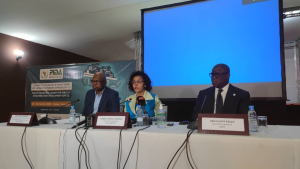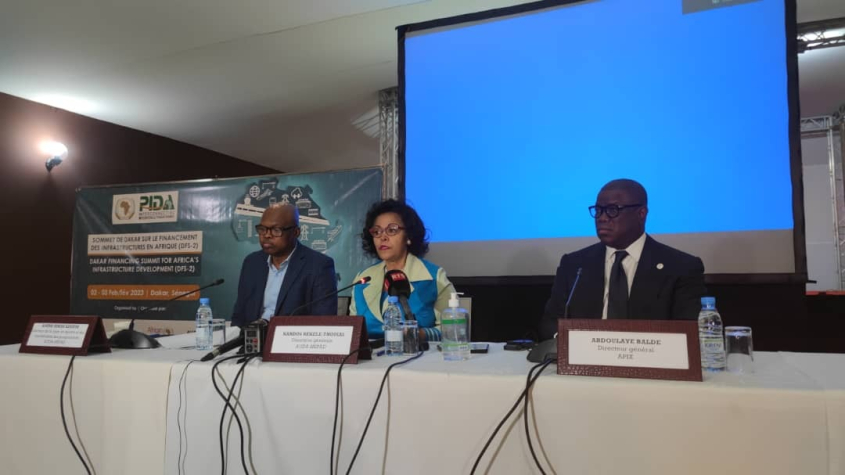“Green infrastructure central to 2nd PIDA action plan,” says NEPAD CEO.
The CEO of the Africa Union Development Agency (AUDA-NEPAD), Nardos Bekele-Thomas, has said climate change and sustainability were key considerations in the design of the 2nd Programme for Infrastructure Development in Africa Priority Action Plan (PIDA PAP II), which was adopted by the Assembly of Heads of State and Government of the African Union in 2021.

“Based on our experience implementing the first PIDA Priority Action Plan, the second PIDA Priority Action Plan will take climate change into account; green and sustainable infrastructure will be our focus,” Ms Bekele-Thomas told a group of journalists Wednesday in Dakar, Senegal, during a media breakfast ahead of the second Dakar Financing Summit for Africa’s Infrastructure Development (DFS-2).
“AUDA-NEPAD has come up with a mechanism, processes and tools to ensure the [PIDA PAP II] projects are sustainable. The PIDA Quality Label (PQL) under our Service Delivery Mechanism (SDM) will ensure people are at the center of our infrastructure development through consultations with communities, and clear indicators. There are many other tools developed to foster a sustainable infrastructure development in Africa.”
The 2nd PIDA Priority Action Plan (PIDA PAP II), to be implemented over a ten-year period (2021– 2030), is a $160 billion-worth basket of 69 projects covering the energy, ICT, transportation, and water sectors, while the 1st PIDA Priority Action Plan (PIDA PAP-1) was implemented between 2012 and 2020. To this end, African heads of state, private investors and development partners will converge in Dakar over the next two days to raise the necessary financing needed to accelerate the implementation of 20 priority projects under PIDA PAP II.
DFS-2 seeks to mobilize the private sector around 20 world-class infrastructure projects defined as priorities for boosting socio-economic development and intra-African trade under the African Continental Free Trade Area (AfCFTA). The 20 priority projects in energy, transport, water or information and communication technologies (ICTs) will be presented to the heads of state attending the Summit as well as private investors and development partners.
AUDA-NEPAD said the projects have successfully passed the selection and risk minimization test of their Service Delivery Mechanism and have therefore been certified as “feasible and financially sustainable and profitable.” The AU development agency says its mission is to coordinate and implement priority regional and continental infrastructure projects that promote regional integration.
“After the first Dakar Financing Summit held in 2014, this second edition will highlight the ongoing paradigm shift in infrastructure financing and development in Africa. With the enhancement of the integrated intra-African corridor concept, AUDA-NEPAD encourages a multi-sectoral approach to infrastructure development with a strong emphasis on regional integration of territories while tightening its requirements in terms of feasibility and bankability,” said a joint press statement by DFS-2 organizing partners.
The statement concludes that the financial commitments made at the end of the two-day summit (whether public, private, or mixed) will be presented in an official declaration underlining the long-term commitment of the various actors to support Africa’s infrastructural development.
















